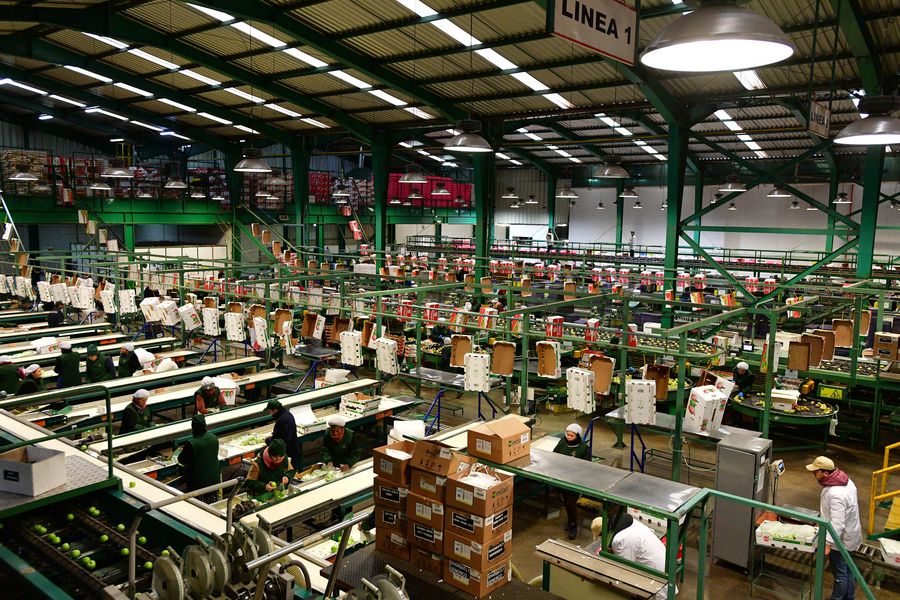
Employees work at a fruit factory in San Fernando, Chile, June 14, 2019. (Xinhua/Jorge Villegas)
A delegation from the Jiangxi Academy of Sciences in southeast China traveled to Chile's capital Santiago to sign the first such deal in the kiwi sector with the national Association of Fruit Exporters (Asoex).
PEUMO, Chile, Dec. 13 (Xinhua) -- Chinese scientists are poised to help Chile expand its kiwi industry with new varieties of the fruit, which is native to China.
A delegation from the Jiangxi Academy of Sciences in southeast China traveled to Chile's capital Santiago to sign the first such deal in the kiwi sector with the national Association of Fruit Exporters (Asoex).
"We signed an agreement with Jiangxi province ... regarding the possibility of bringing new varieties of kiwi from China to Chile, to expand our potential to offer the world new varieties," Asoex president Ronald Bown told Xinhua.
The agreement, signed on Thursday, calls for "the exchange of scientific information about the production of each one of the new varieties and, evidently, provides the possibility of undertaking tests in Chile, with an eye to having products on the market within five years," said Bown.
Chilean fruit exporters are working on growing sweeter and more robust red, yellow and green kiwi varieties, so they can offer consumers a fruit that "looks good, tastes good, and lasts a long time after being picked," Bown said.
Li Xionghui, vice president of the academy, underscored the mutually positive impact of the agreement, saying it "reinforces cooperation between China and Chile in science and technology, so in the future both sides see benefits."
It will serve "to open up a new channel for scientific exchange and to promote research, friendly ties and a quality platform to strengthen cooperation," he added.
Carlos Cruzat, director of Chile's Kiwi Committee, led the visiting delegation on a tour of a farm in Peumo, in the central province of Cachapoal, where they had a chance to see the cultivation and harvesting process firsthand, especially the technical aspects of production.
According to Cruzat, Cachapoal's dry climate, fertile soil and sea air are ideally suited to growing kiwi, as well as lemons, oranges, pears and grapes.
In fact, its similarity to Jiangxi's environment makes cooperation in the field more meaningful, he said.
"The programs for genetic improvement they are carrying out may adapt better to our conditions," said Cruzat.
As China "is the original source of kiwis ... for us it's very important to have exchange with them," said the industry insider.
Chile is the second-largest exporter of kiwi in the Southern Hemisphere, and the third-largest worldwide, exporting between 160,000 and 200,000 tons of kiwi a year, or some 200 million U.S. dollars' worth, according to Asoex.
The export volume "has been decreasing in recent years, because the orchards have aged," said Cruzat, noting the need to reinvigorate the sector with new and better varieties. ■



